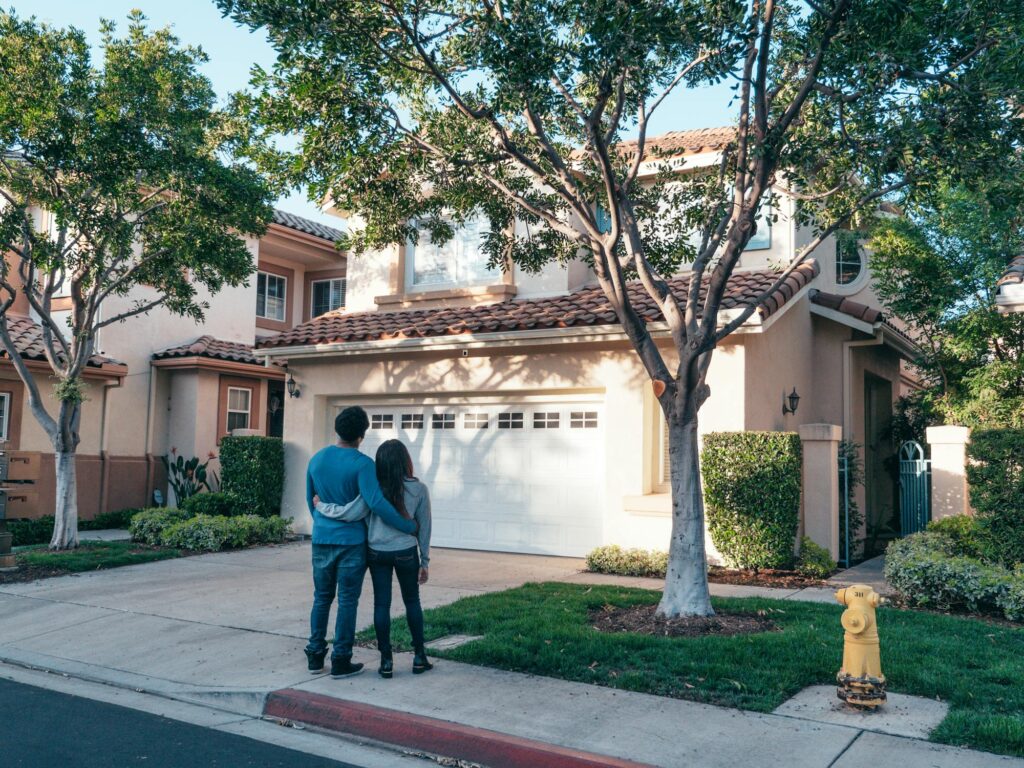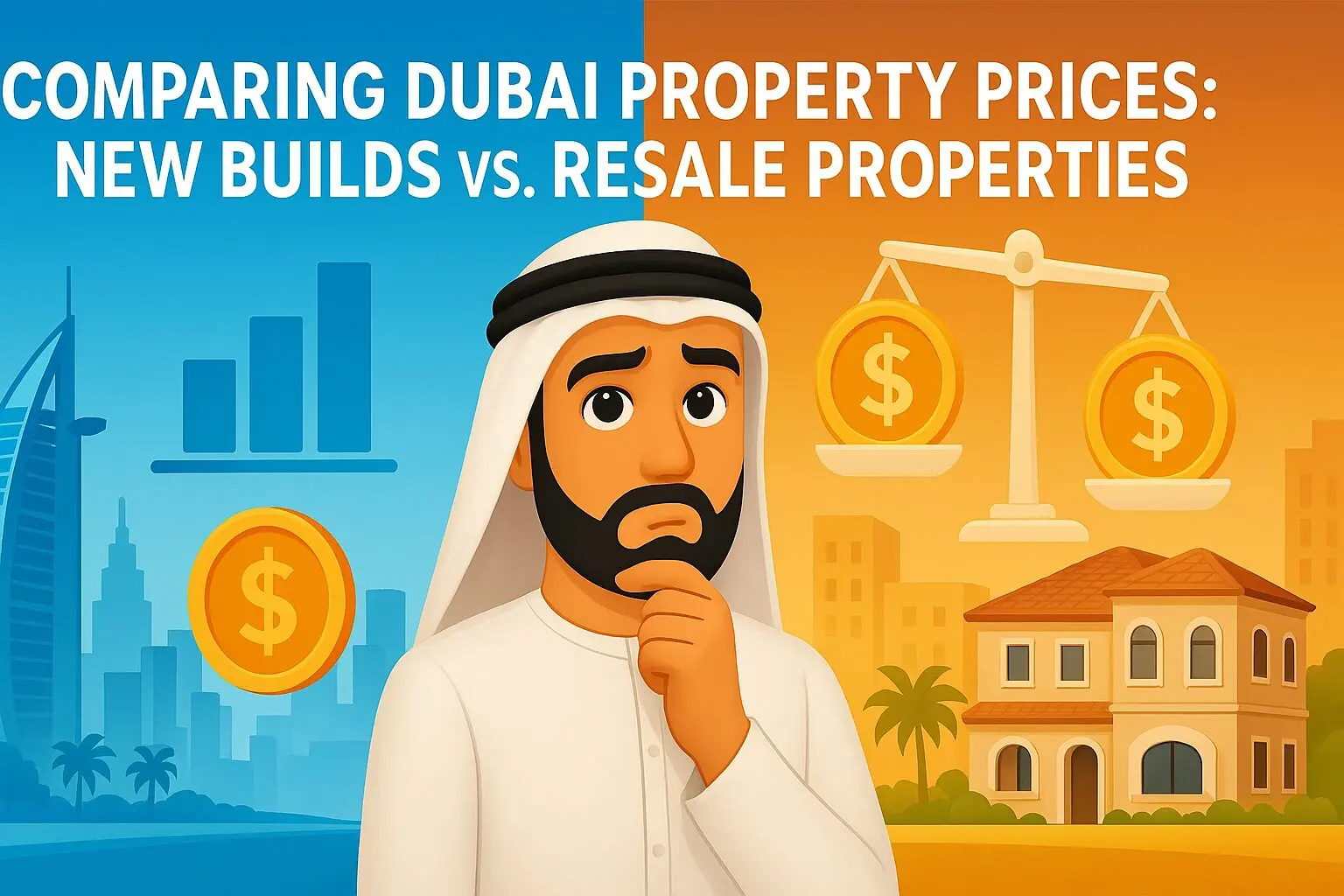Investing in property in Dubai holds strategic value while the legal procedures must be approached with great accuracy. Investors who buy property along with first-time buyers need to know the real estate laws of Dubai to achieve a seamless purchase process.
1. Understanding Dubai’s Property Market
The authorities of Dubai enforce strict regulations upon their real estate industry through specific limitations for international property rights. Here’s what you need to know:
Key Market Data (2023–2024)
| Metric | Data | Source |
| Freehold Areas | Downtown Dubai, Dubai Marina, Palm Jumeirah, Business Bay | Dubai Land Department (DLD) |
| Price Growth (YoY) | 11.4% (Q1 2024) | CBRE UAE Report 2024 |
| Average ROI for Apartments | 5–8% (Downtown Dubai), 6–9% (Dubai Marina) | Bayut Market Report 2024 |
| Registration Fee | 4% of property value + AED 4,000 (DLD fee) | DLD Official Portal |
Foreign Ownership Rules:
- Non-native individuals of the UAE have the freedom to purchase freehold properties within specified areas.
- The leasehold option extends up to 99 years throughout specific areas of Dubai.
Key Market Insights
- Ownership: Non-UAE nationals have the ability to own the property outright in certain non-UAE national designations like Downtown Dubai, Dubai Marina, and Palm Jumeirah.
- Long-Term Leases (Up to 99 Years): In other areas, ex-pats can acquire long-term leases for up to 99 years.
- Dubai real estate market trends: 2023 kicks the year off with a surge of activity; prices increase, approximately by 15 percent year on year, according to Knight Frank.
Speaking to Colliers International, a senior analyst Ahmed Al Hashemi said: “The attractiveness of the ROI for the investors is very attractive in Dubai’s real estate sector, which is because it has a transparent regulatory framework.”
Why Invest in Dubai?
There are several advantages that Dubai becomes an attractive location for those who want to buy property:
- Non-Taxable: One of the big attractions of investing in it is that income tax and capital gains tax are not applicable to property sales.
- Strategic Location: Being at the meeting point of Europe, Asia, and Africa, Dubai acts as a conduit for worldwide business and business.
- Investment in Infrastructure: Investment in infrastructure such as the metro expansion or new residential projects helps to increase the projected values of the property.
- Tourism and Hospitality: Millions of tourists yearly, Tourism and Hospitality and short-term properties are quite popular, especially in Downtown Dubai and JBR (Jumeirah Beach Residence).
Sustainability and Innovation
Also, Dubai is way ahead in developing in a sustainable way. Mohammed Bin Rashid City and Expo 2020 District has eco-friendly designs and projects that focus on smart technologies. However, green-certified buildings are receptacles of high resale value and low operational cost have gained increasing impetus for investors to buy.
Demographics Driving Demand
The diverse population made Dublin real estate in demand. The city’s total population is more than 85% expats which means that there is a solid rental market here. The Golden Visa program attracted wealthy people who wanted to stay there in the long term and added more property sales.
Step 1: Research & Due Diligence
Avoid generic advice—focus on actionable steps:
A. Identify Your Needs
| Property Type | Best For | Top Communities |
| Luxury Apartments | Investors/Professionals | Dubai Marina, Palm Jumeirah |
| Family Villas | Long-term residents | Arabian Ranches, Emirates Hills |
| Short-Term Rentals | Tourism-focused buyers | Downtown Dubai, JBR |
- Also, find out whether the property you want to purchase is for personal use or as an investment.
- Look at factors such as location, advantages, as well as nearness to schools or work areas.
- Determine your lifestyle preferences: beachfront full-time; the convenience of an urban center; suburban tranquility.
For example, if you are searching for family-friendly areas, Arabian Ranches, as well as Emirates Hills offer large villas and top-class schooling. In fact, Dubai Marina and Business Bay appeal to those young professionals who desire a more vibrant city life.
B. Budgeting & Hidden Costs
- Down Payment: 10–25% for off-plan; 20–30% for mortgages.
- Additional Fees:
- Agency commission: 2% (buyer) + 2% (seller).
- Service charges: AED 12–30/sq. ft. annually (varies by community).
Pro Tip: Use DLD’s RERA Index to verify developer credibility.
- Decide how much you can afford to spend on a mortgage down payment.
- Find out how escrow accounts (necessary for off-plan buying) will protect buyer funds.
- Include other costs like service charges, maintenance fees, utility bills, etc.
When asked about average per square-foot service charges in Dubai, Bayut’s survey stated that the averages vary between AED 10 to AED 20 per square foot, depending on the community and amenities it offers.
Verifying Property Legitimacy
- Ensure there are no disputes or encumbrances on the property and conduct legal due diligence on the property.
- Check the developer’s experience and reputation. For instance, v Emaar Properties and Nakheel are the most trusted developers that exist in Dubai.
- Make sure it is a master developer status: Only master developers with verified approval can sell units or plots in their projects.
“Real estate lawyer specializing in Dubai transactions, Sarah Khan advises that, “You should always cross-check the developer’s credentials with the Dubai Land Department (DLD).”
Additional Considerations
- Inspects future development plans for the neighborhood. Areas targeted for improvements usually tend to appreciate.
- Use platforms like Property Finder or Zoopla to review historical price trends in order to determine whether there might be prospects of appreciation.
- Reach out to local real estate agents who understand the community and emerging market very well.
Importance of Timing
There are certainly in fact strategies to purchase strategically that can pay big time savings. For instance, you can purchase something during the summer months when there is a bit of less demand, and you expect you will have more bargaining power. On the other hand, if you are to buy during the period of the Dubai Shopping Festival for instance, you will certainly have to act quickly when the competition is brisker.
Step 2: Understanding Key Documents
The documentation of Dubai’s property purchase is of needful importance. Knowing these documents will inform you of the transaction.
Essential Documents
1. The official document proving ownership which is called title deed. Don’t forget to clear title deed free of liens.
Types of Title Deeds:
- Freehold Title: Gives right of property ownership.
- It refers to Leasehold Title which gives the user a right to use something for a definite period of time.
2. Advance Contract: A contract in which advance payments are made during the contract period.
- Examine clauses on handover timelines, defect liability period and mechanisms of dispute resolution.
3. NOC: if the property belongs to a community, which is controlled by a homeowners’ association.
- Ensures that the community rules and regulations are upheld.
4. Interim Contract: Issued to protect buyers on off-plan properties until the final handover, this contract is known as Oqood Certificate.
- Pertains to the payment milestones and project completion timelines.
All documents must be verified via DLD’s Ejari system.
Key Documents Table
| Document | Purpose | Risk if Missing |
| Title Deed (Freehold/Leasehold) | Proof of ownership | Legal disputes, resale issues |
| Sale Agreement | Terms of payment/handover | Unenforceable claims |
| NOC (No-Objection Certificate) | HOA approval for resale/rental | Fines or rental bans |
| Oqood Certificate (Off-Plan) | Protects buyer funds in escrow | Delayed handovers, developer defaults |
Source: Dubai Land Department (DLD) Transaction Guidelines, 2024

Document Verification
- One can use the DLD’s online portal to verify the authenticity of the document.
- Get a competent lawyer to scout out contracts for potential red flags.
- Check the registry status of the property with the Ejari system which normally records the tenancy agreements.
Legal Implications of Each Document
- Failure to get an NOC could see someone fined or placed on a list of people not allowed to use property.
- Incomplete Oqood certificate might lead to a delay of handovers or disputes between parties on the payment milestones.
- Buyers are exposed to unknown liabilities through misinterpretation of the deal.
Case Study Example
Here is a case of Mr. Ali, a first time buyer who missed the fine print in the sale agreement of his property. At his own expense he made a mistake that he failed to see, that some additional fees had to be paid for late payments. He should have consulted a lawyer before this issue.
Step 3: Negotiating and Finalising the Contract
The next step is determining the fair number to pay and completing the contract. So, this stage calls for your prudence to look into the minute details.
Negotiation Tactics
- Compare prices using Property Finder or Bayut.
- Demand clauses for:
- Defect liability period (min. 1 year).
- Penalties for delays (e.g., 10% of property value).
Pitfall Alert:
- Unclear force majeure clauses can void compensation for delays.
Contract Terms
- Outline payments terms, delivery times, and penaltys if you are late with the delivery.
- Addition of clauses discussing the responsibilities towards the maintenance and dispute resolution mechanism.
- Conditions involved in early termination or transferring of ownership are specified.
Common Pitfalls to Avoid
- Spending time on overlooking hidden fees or unclear clauses in the contract.
- Also, if the financing is in foreign currency, you fail to account for fluctuating exchange rates.
- Going at too fast with the negotiation process without seeking the right legal process Dubai real estate advice.
Role of Real Estate Agents
Many buyers choose to deal with developers but a good real estate agent can give you insight and power when doing negotiating. Buyers oftentimes get access to agent who might only have access to exclusive listings and insider information about future projects.
Step 4: Payment and Escrow Accounts
Escrow accounts are mandated for off-plan properties in Dubai in order to protect buyer funds. The accounts are managed by the DLD and payments release only as and when the specific milestones are met.
Payment Structure
- These usually have down payments often 10–20% and installments according to construction progress.
- When it comes to ready properties, owners usually require the full payment before transfer of ownership.
- There are mortgages for UAE residents or non residents that offer between 3% and 5% interest rates.
Escrow Benefits
Developers are prevented from misusing funds.
Triggers transparency and accountability in the whole of the transaction.
In case of project delays or cancellations, it protects buyers.
Managing Cash Flow
- You should plan your finances properly and do installment payments without doing crazy things to your liquidity.
- If you are purchasing the Ferrari out of pocket, consult a financial advisor to find tax efficient strategies to fund the purchase.
- If you choose to go for a mortgage then shop for several lenders to obtain the lowest interest rate and repayment terms.
Off-Plan vs. Ready Properties
Here are off-plan properties has discounted price as well as flexible payment for handover risks involve delayed handover or even incomplete project. Ready properties cancel these uncertainties, however at the cost of premium pricing. It is very important to weigh the pros and cons given your risk tolerance and investment goals.
| Factor | Off-Plan | Ready Property |
| Price | 10–20% lower | Market rate |
| Risk | Project delays/cancellations | Immediate ownership |
| Payment Plan | Installments linked to milestones | Full payment at purchase |
Escrow Rules:
- Mandatory for off-plan (DLD-monitored).
- Funds released only after construction milestones.
Step 5: Registration with the Dubai Land Department
Once the transaction is complete, the final step in the property purchase process is registering it with DLD. This will ensure your ownership and protection as a supervised buyer.
Process Timeline
- Submit Documents: Title deed, passport, NOC (3–5 days).
- Pay Fees: 4% of property value + AED 4,000 (DLD fee).
- Receive Title Deed: 1–2 weeks (if no disputes).
Importance of Registration
- Protects against fraudulent claims.
- Gives access to government services regarding the property.
- Facilitates seamless transfer of ownership in the future.
Post-Registration Steps:
- Register utilities (DEWA, Empower).
- For rentals, sign up with Ejari.
What Happens After Registration?
As soon as you are registered, you get several advantages of the DLD, including discounted services in the real estate field and invitations to special events. Also, registered owners may take part in government promoted activities to improve the community involvement.
Expert Tips
- Legal advice: Consider employing a lawyer with an exempt lawyer’s license (AED 5,000 – 10,000).
- Off-Plan Risks: RERA Approved Developer (Emaar, Nakheel) – Be Careful of Off Plan Risks.
- Prices: Track periodically updated prices on pricing reports from DLD.
“The ROI of green buildings in Dubai is 12% better than conventional properties.”
— Knight Frank UAE, 2024
FAQs About Property Purchase in Dubai
They are right, non-UAE nationals can legally own property in designated freehold areas or lease on a long-term basis in other regions.
Purchase: AED 2,000,000;
DLD fees: AED 80,000 (4%);
Agent fee: AED 40,000 (2%);
Total: ~AED 2,120,00.
Normally the registration process takes 1–2 weeks assuming all the documents are in order.
No, homeowner has the right to rent their properties. However, there may be regulations for short-term rentals in some communities.
However, buyers can file a complaint to the DLD complaining that payments will be compensated or refunded.
Conclusion
It is worth investing and owning a property in Dubai. By going through this step by step guide, deeply do diligence, and the advice, you can do this over with confidence getting a great asset. So, keep transparency, compliance, and sustainability in mind as it will help you maximize your investment’s potential.







